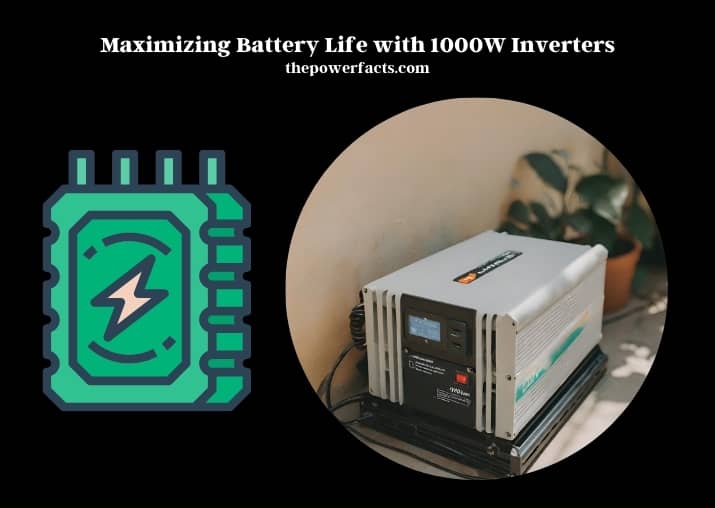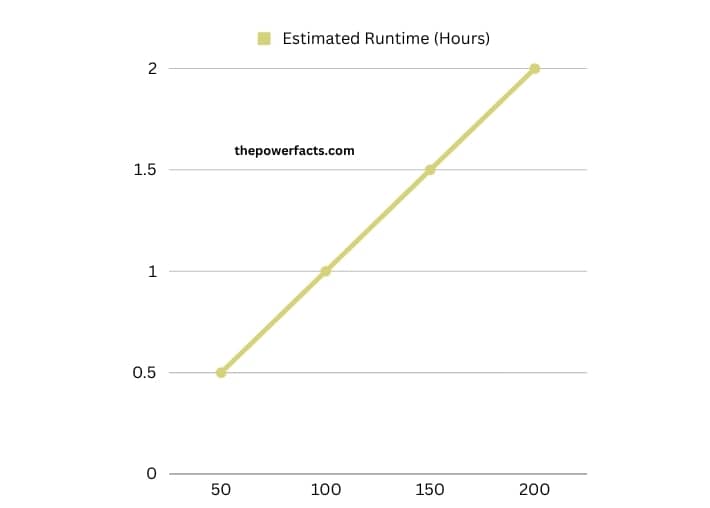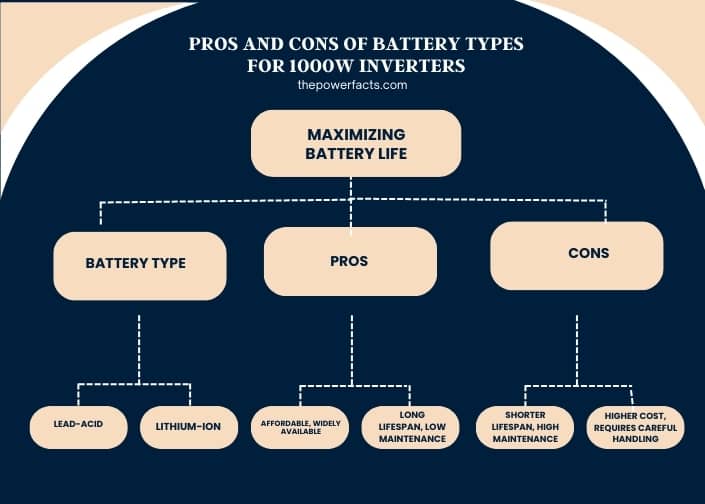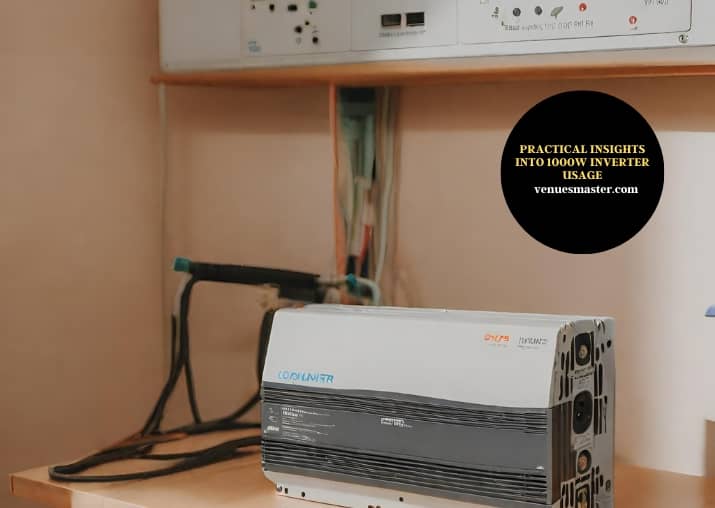The duration a battery will last with a 1000W inverter depends on the battery’s capacity and the power demand of the connected devices. Typically, a 100Ah battery can power a 1000W load for about an hour.
The longevity of a battery in this context is influenced by several factors beyond just its capacity. The efficiency of the inverter plays a crucial role. Inverters convert DC power from the battery to AC power, and during this process, some energy is lost as heat. The type of inverter and its efficiency rating can significantly impact how long the battery lasts. For example, pure sine wave inverters are generally more efficient than modified sine wave inverters.

Another key factor is the nature of the load connected to the inverter. Consistent, high-power demands will drain the battery faster than intermittent or low-power usage.
The health and age of the battery are important. Over time, batteries lose their ability to hold a full charge, which reduces their operational duration. Regular maintenance and proper usage can help maximize battery life. This includes practices like avoiding deep discharges, maintaining an appropriate charging cycle, and storing the battery in a suitable environment. By considering these aspects, users can optimize their system to ensure their battery lasts as long as possible under the given conditions.
Battery Life Estimation for 1000W Inverters
Understanding how long a battery will last when connected to a 1000W inverter is crucial for efficient energy management. The duration a battery can sustain power output depends on several factors, including its capacity, the power demand of the connected devices, and the efficiency of the inverter itself. To estimate battery life, one must first know the battery’s amp-hour (Ah) rating. This rating, combined with the power demand in watts, allows for the calculation of the battery’s discharge time. For instance, a 100Ah battery connected to a 1000W inverter would theoretically last for about an hour, assuming full efficiency and a constant power draw.
Real-world conditions such as inverter inefficiencies and variable power demands can alter this estimate.
Factors like the depth of discharge and the battery’s health also play a significant role in determining its actual runtime.
Estimated Battery Life with Different Capacities for a 1000W Inverter
| Battery Capacity (Ah) | Estimated Runtime (Hours) |
| 50 | 0.5 |
| 100 | 1 |
| 150 | 1.5 |
| 200 | 2 |

Enhancing Battery Life through Inverter Efficiency
The efficiency of an inverter is a key factor in maximizing battery life. Inverters convert DC power from the battery to AC power for use by standard appliances. This conversion process is not 100% efficient, with some energy lost as heat. The efficiency of an inverter can vary based on its type and quality. For example, pure sine wave inverters are typically more efficient than modified sine wave inverters. Improving inverter efficiency involves selecting the right inverter for the application and ensuring it operates within its optimal load range. For instance, an inverter that is too large for the required load will operate inefficiently, draining the battery faster. Conversely, an inverter that is too small may be overloaded, also leading to inefficiency and potential damage. Regular maintenance and proper usage can also help maintain inverter efficiency, thereby extending battery life.
Battery Maintenance for Enhanced Inverter Performance
Proper battery maintenance is essential for ensuring optimal performance and longevity, especially when used with a 1000W inverter. Different battery types, such as lead-acid or lithium-ion, have specific maintenance requirements. For lead-acid batteries, regular checking of electrolyte levels and ensuring proper charging practices are vital. Overcharging or deep discharging can significantly reduce their lifespan. Lithium-ion batteries, on the other hand, are more tolerant of deep discharges but still require careful monitoring to prevent overcharging and overheating. Implementing a regular maintenance schedule that includes cleaning battery terminals, checking connections, and ensuring the battery is stored in a cool, dry place can significantly enhance its performance and lifespan.
Using a battery management system can help monitor the battery’s state and optimize its usage according to the load demands of the inverter.
Selecting the Ideal Battery for 1000W Inverters
Choosing the right battery for a 1000W inverter is a balance between cost, capacity, and lifespan. The most common battery types for such applications are lead-acid and lithium-ion. Lead-acid batteries are more affordable but have a shorter lifespan and require more maintenance. Lithium-ion batteries, while more expensive, offer a longer lifespan, higher energy density, and require less maintenance. The choice depends on the specific needs of the application, such as the required runtime, load characteristics, and budget constraints. For instance, in scenarios where long runtime is essential, a high-capacity lithium-ion battery would be more suitable despite its higher cost. Conversely, for less demanding applications, a lead-acid battery might suffice.
Pros and Cons of Battery Types for 1000W Inverters
| Battery Type | Pros | Cons |
| Lead-Acid | Affordable, widely available | Shorter lifespan, high maintenance |
| Lithium-Ion | Long lifespan, low maintenance | Higher cost, requires careful handling |

Practical Insights into 1000W Inverter Usage
Exploring real-world applications of 1000W inverters provides valuable insights into their capabilities and limitations. These inverters are commonly used in various settings, including recreational vehicles, solar power systems, and emergency power backups. Each application presents unique challenges and demands. For instance, in solar power systems, the inverter must efficiently convert variable DC output from solar panels into stable AC power. In recreational vehicles, the inverter must be robust enough to handle fluctuating loads and environmental conditions. Understanding these practical applications helps in identifying future trends and potential improvements in inverter and battery technology. Innovations are continually being made to increase efficiency, reduce costs, and enhance the overall performance of these systems.

FAQs
Does Battery Type Affect Lifespan with a 1000W Inverter?
The type of battery significantly influences its lifespan when used with a 1000W inverter. Different battery chemistries, such as lead-acid, lithium-ion, or nickel-metal hydride, have varying capacities, discharge rates, and resilience to frequent charging and discharging. For instance, lithium-ion batteries generally offer a longer lifespan and higher efficiency compared to lead-acid batteries under the same conditions. The choice of battery type should align with the specific requirements of the inverter’s application, considering factors like energy density, cycle life, and environmental conditions.
Will a 100Ah Battery Last Longer with a 1000W Inverter Compared to a 2000W Inverter?
Yes, a 100Ah battery capacity will last longer with a 1000W inverter compared to a 2000W inverter. The lower power output of the 1000W inverter will draw less energy from the battery, allowing it to last longer before needing to be recharged.
How Does Battery Age Impact Performance with 1000W Inverters?
As batteries age, their capacity to hold a charge diminishes, directly affecting their performance with a 1000W inverter. This degradation is due to chemical changes within the battery cells over time and with repeated charging cycles. Older batteries may not provide power as long as they did when new, leading to a shorter operational duration for the inverter. Regular testing and monitoring of the battery’s capacity can help in assessing its health and determining the appropriate time for replacement.
Can External Factors Influence Battery Duration with 1000W Inverters?
External factors like temperature, humidity, and usage patterns can significantly influence the duration a battery lasts with a 1000W inverter. Extreme temperatures, both hot and cold, can affect battery chemistry, reducing its efficiency and lifespan. High humidity levels can lead to corrosion and damage to the battery components.
How the battery is used – such as the frequency of deep discharges and the average load on the inverter – also plays a critical role in determining its overall lifespan.
Is Battery Capacity the Sole Determinant of Duration with 1000W Inverters?
While battery capacity is a primary factor in determining how long it will last with a 1000W inverter, it’s not the sole determinant. The efficiency of the inverter, the nature of the load (constant or variable), and the battery’s health and age also significantly impact the duration. A higher capacity battery will generally last longer, but its actual performance also depends on these additional factors.
How Do Inverter Load Variations Affect Battery Life?
The variations in the load connected to a 1000W inverter can greatly affect the battery’s life. A battery will drain more quickly under a higher load, as the inverter draws more current to meet the demand. Conversely, with a lighter load, the battery will last longer. It’s important to understand the power requirements of the devices being powered by the inverter to estimate accurately how long the battery will last under different load conditions.
Can Regular Battery Testing Extend Lifespan with 1000W Inverters?
Regular battery testing and monitoring can help extend its lifespan when used with a 1000W inverter. By keeping track of the battery’s health, issues such as reduced capacity, potential cell imbalances, or early signs of failure can be identified and addressed promptly. This proactive approach allows for timely maintenance or replacement, ensuring the battery operates efficiently and reducing the likelihood of unexpected power outages.
Summary
This article provided an in-depth look at the factors affecting battery life when used with a 1000W inverter. It covered the importance of understanding battery capacity and inverter efficiency, the impact of proper maintenance, the criteria for selecting the right battery, and insights from real-world applications. By considering these aspects, users can optimize their inverter systems for maximum efficiency and longevity.